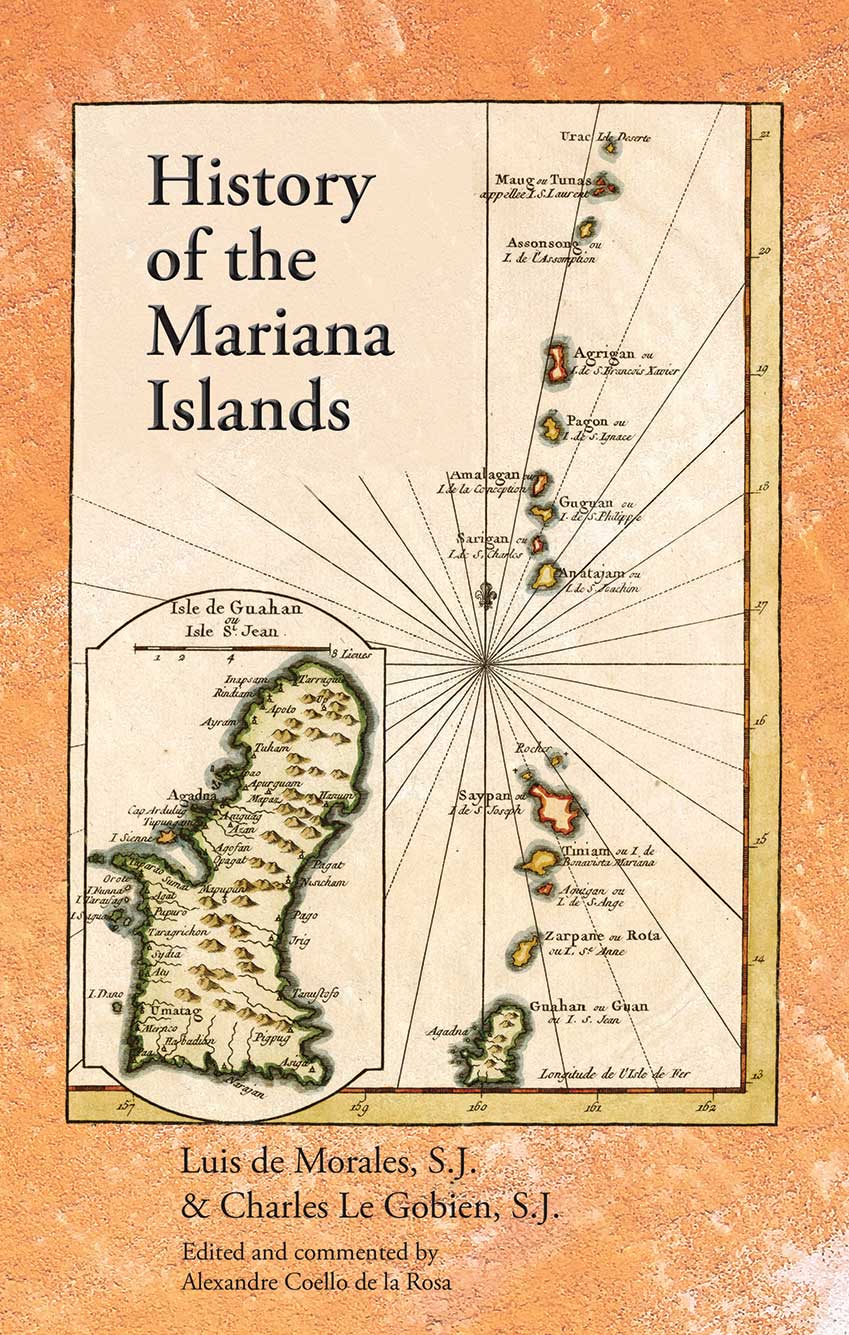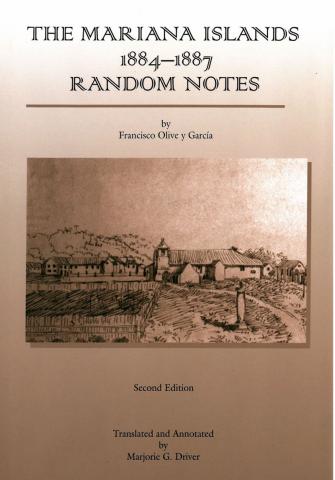- Home
-
Admissions
-
Academics
-
Students
-
Research
-
Research Centers
- Cancer Research Center
- Center for Excellence in Development Disabilities Education, Research & Service (CEDDERS)
- Center for Island Sustainability (CIS)
- Marine Laboratory
- Micronesian Area Research Center (MARC)
- Water and Environmental Research Institute (WERI)
- Western Pacific Tropical Research Center (WPTRC)
-
Research Centers
-
Outreach
- Giving
- Alumni
-
About
You are here

CHamoru Legends: A Gathering of Stories
Teresita Lourdes Perez
Multiple Artists
CHamoru Legends: A Gathering of Stories retells 12 CHamoru legends with personal reflections from author Teresita Lourdes Perez, unique illustrations for each legend by Guam artists, and versions of the legends in the CHamoru language by Maria Ana Tenorio Rivera. The publication is a reversible book featuring the legends in English on one side and in CHamoru on the other. Through these layers of interpretation, the book weaves together strips of wisdom and cultural lessons like the leaves used to shape the CHamoru guåfak, or mat, upon which the earliest CHamoru storytellers sat sharing their versions of these timeless tales.
13 Months in Malesso'
Dolores Barcinas Santos
Jessica Perez-Jackson
CHamoru ancestors in the Mariana Islands marked time using the phases of the moon and the important seasons in their lives. Months were named to describe seasonal weather and the best times to fish, plant, and harvest food. Just like their ancestors, the Barcinas girls – Lole’, Lia, Rita, Arisa, and Ha’åne’ – mark time using the seasons of their beautiful village of Malesso’ in southern Guam. 13 Months in Malesso' captures a distinctly CHamoru sense of time and place, and beautifully illustrates the many ways in which the island of Guam nourishes and sustains its people.
History of the Mariana Islands
Luis de Morales, S.J. & Charles Le Gobien, S.J. Edited and commented by: Alexandre Coello de la Rosa
Histoire des isles Marianes (History of the Mariana Islands), written in Paris in 1700, provides a detailed glimpse into a tumultuous and critically significant period in the history of the Mariana Islands and the Chamorro people – the period commonly referred to as the Spanish-Chamorro Wars.
The Mariana Islands, 1884-1887: Random Notes (Second Edition)
Francisco Olive y Garcia, Translated and Annotated by: Marjorie G. Driver
This report written by Governor Francisco Olive contains his insights about the social, political, and economic conditions of the Marianas. He focuses on the underdevelopment of the islands and draws the Spanish Government to look back at the colony’s history, specifically the second half of the 19th century. The report reflects the colonial mentality of Olive, who stresses the responsibility of the Spanish Government to the inhabitants of the Marianas, leaving unchallenged the right of Spain to maintain its sovereignty over the islands.
Pages
- 1





